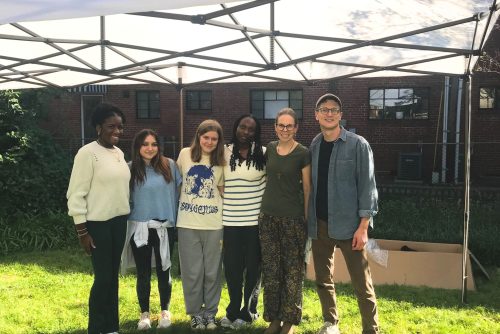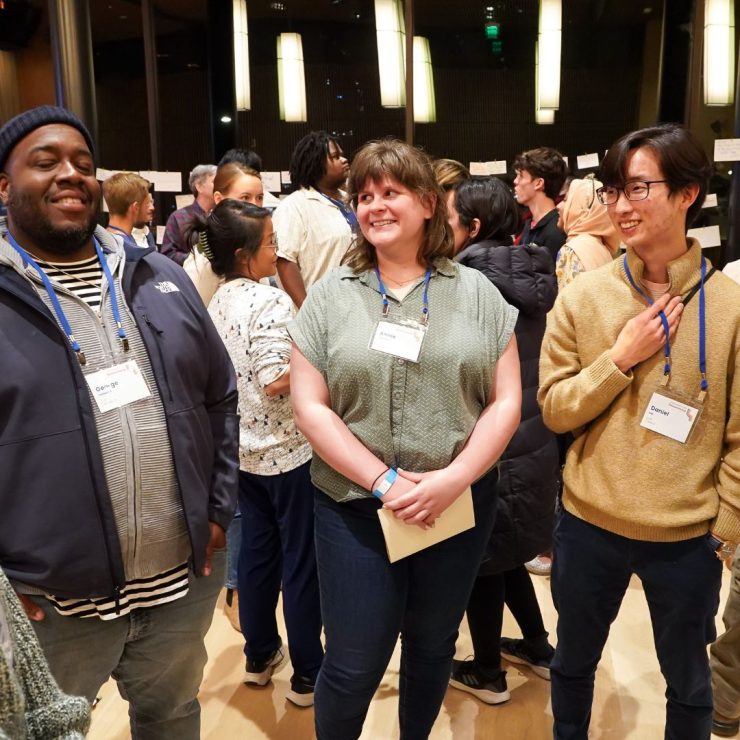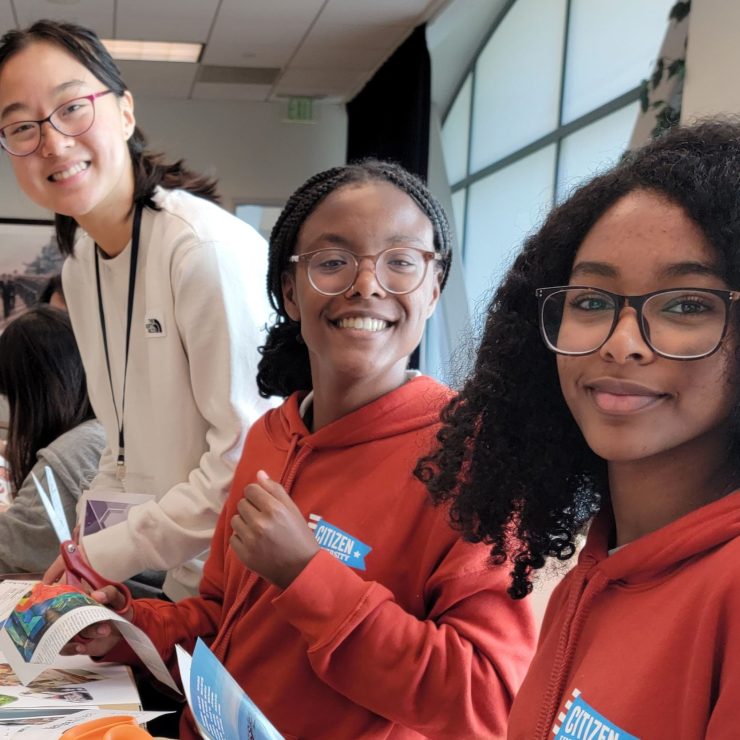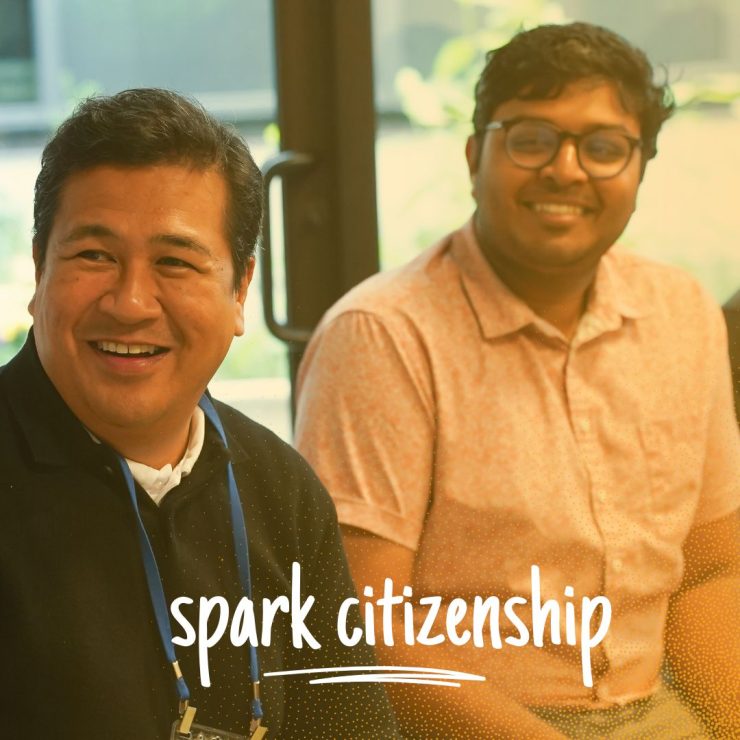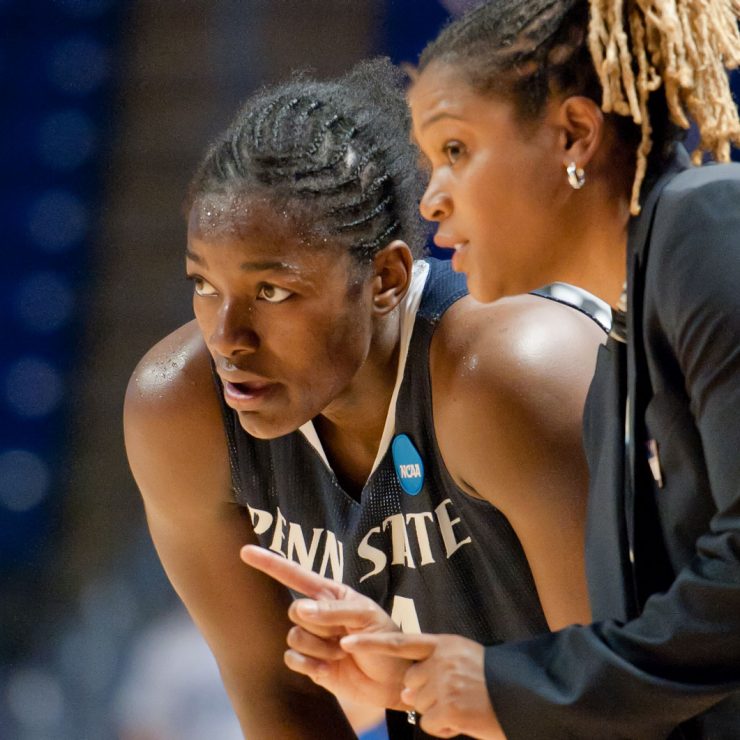If American society were a team in a group cooking competition, I’m not sure our dish would ever make it onto a plate. We have lost the recipe for making connections and live in a culture of indifference and contempt toward our neighbors.
Anyone who has followed a recipe can recall the moment when a wave of overconfidence sweeps into the kitchen, and you throw the recipe away because “you got it from here.” Ego kicks in until you realize that you do not, in fact, “have it.” Soggy and regretful, you uncrumple the recipe and reread it. Throwing away the recipe only to need it again highlights society’s reliance on our shared gifts, so why does society prioritize individualism and personal talent over our collective growth? Why do we insist that we know better than the recipe?
Why does society prioritize individualism and personal talent over our collective growth?
As a young person, I am constantly subjected to the nostalgic recollections of adults describing a time when the recipe for connection was simple. The ingredients were all around you. You went to a park or mall and spoke to the people nearby. Prep time was minimal, cooking only took a little time to warm up, and the connection was ready to enjoy. Today’s increasingly polarizing and digital landscape makes it difficult to imagine a world like this, but a recent experience with a poorly designed tent has encouraged me to consider pulling that recipe out of the trash.
Hope North Carolina is a local nonprofit providing housing for seniors and adults with intellectual and developmental disabilities in an inclusive environment “where people of all abilities and ages experience a sense of belonging.” In need of service hours, I volunteered to help set up a tent with classmates from my school. Hope NC’s location is directly across the street from my campus, but proximity alone does not make neighbors. We had to step out of our bubbles to discover the incredible people and connections beyond our school’s gates.
In a grassy patio area, I found myself alongside three other teenage girls, our school chaplain, two staff members, and a long cardboard box. Inside was the tent. There were no instructions. The black print on the packaging was our only guidance. At first, it was amusing that such a complex product lacked directions, but when the initial intimidation wore off, we decided to just go for it. Each person grabbed pieces and began assembling with much hope but little confidence. Sides collapsed, pieces disappeared into the grass, and none of us were tall enough to lift the tent fully. Still, we kept building. We fumbled forward until the pile of parts resembled the image on the box. Lots of sweat and granola bars later, the tent stood tall and ready for use. The staff explained that it would become an outdoor community area encouraging people to connect.
By building space for others, we also create space for ourselves.
Beyond learning how to assemble a tent, there was a deeper takeaway: By building space for others, we also create space for ourselves. I may not be a resident of the Hope NC community, but crafting a gathering space for them helped me connect with wonderful neighbors who were previously unknown to me. Building the connection we all crave looks like building a tent with no instructions. We must gather a community, fumble forward, and embrace challenges together. Our backgrounds, abilities, and beliefs may differ, but our willingness to engage openly is the defining factor in our success.
Building a tent is straightforward; building an inclusive society is not. Yet, I am confident we already have every tool and direction needed to create a world that shelters us all. To achieve this, we must create our own recipes because there is no recipe book for modern connection. We must toss our egos aside and ground ourselves in the reality that shared knowledge, backgrounds, and identities hold immense value.
We must create our own recipes because there is no recipe book for modern connection.
I look forward to being construction partners with my neighbors as we work toward the future we all deserve. A future where classrooms are safe havens, where it still snows in the winter, and where fruit still grows each spring. A future where we are all represented, where we are all safe, and where we all have the opportunity to grow old. The recipe for this future is in our hearts at this moment and always. May we all be courageous enough to see it, share it, and build it.
Joy Udoh is a high schooler from Atlanta, Georgia, who is passionate about storytelling and self-expression. She will attend Columbia University in the fall, majoring in urban studies with a minor in film and media studies.
Joy participated in our Youth Collaboratory program in 2023. She shares, “The Youth Collaboratory taught me that making change isn’t about giant leaps; it’s about being where your feet are and taking the next step. Whether that step is across the street or the country, every movement forward matters. I’ve always wanted to create meaningful change in my community, but I never felt like I had enough personal power to actualize it. Showing up that Friday afternoon was a direct and impactful way to uplift my neighbors, and all I needed was myself and the intention to help someone else. In 30 minutes, with absolutely no tools or instructions, my schoolmates and I were able to change the lack of community space in our area, uplift a diverse group, and foster new connections with our neighbors. If I had to distill my lessons from the Youth Collab, I would say, “Show up and step up” because you really are more powerful than you think.”
